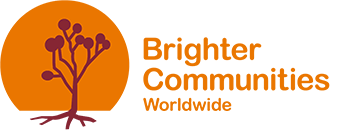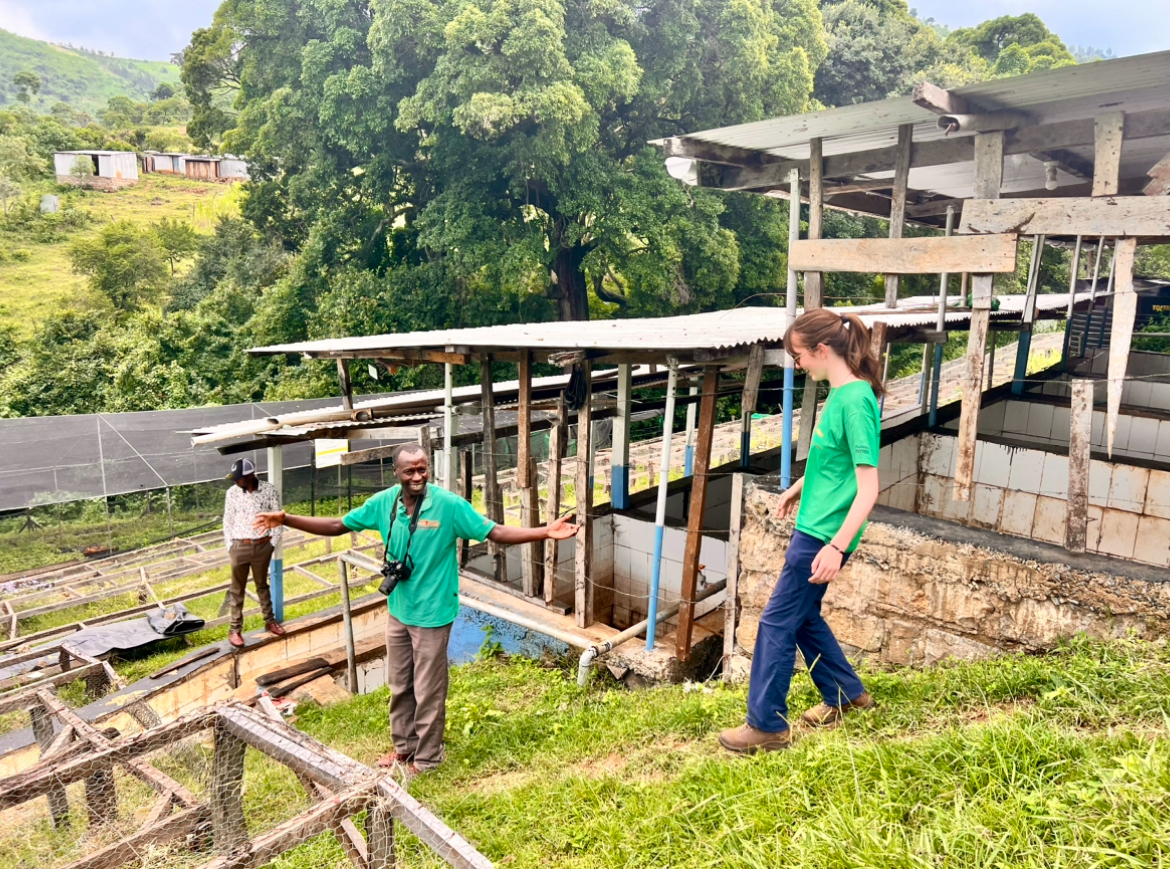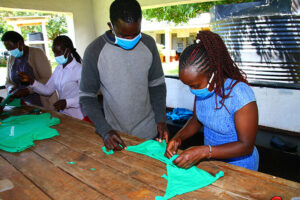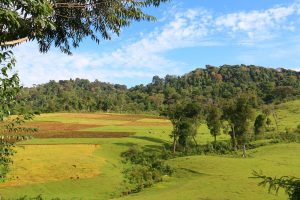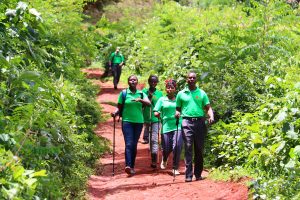Jambo!
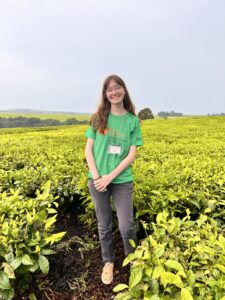
I’m Veronica, an International Development student at UCC and I am currently on my third-year work placement with Brighter Communities Worldwide. I have just returned from Kenya where I was a part of the June Harambee volunteer group. I’ve had an unforgettable experience facilitating various projects and talking with community members throughout Kericho County.
Part of what drew me into working with the organization was that BCW takes an intersectoral approach to development, covering health, education, and economic empowerment. While working in Kenya, I was able to see firsthand just how hard the Kenyan staff works to carry out these programmes as well as the impact on the beneficiaries. I left Kenya inspired to keep working in development and to carry the knowledge I’ve gained through this experience into my studies and future work.
The Power in Economic Empowerment
For me, some of the most exciting aspects of development are small and medium enterprises, microfinance, and any income-generating activities, therefore participating in the Economic Empowerment programme with Salim Kiprotich Koskei and Bob Collins Kipngeno was a priority of mine. The Business Skills Training aims to promote holistic, effective, and sustainable business strategies. The three-day course covers a range of topics including, marketing, competition, budgeting, bookkeeping, banking, and creating a business plan.
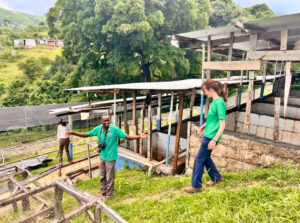
Many of those who participated in the economic empowerment programme are still in touch with BCW staff. The impact of the programme can be seen within the town of Londiani, where those who have completed the course are selling eggs and sausages on a street corner or renting plastic chairs for events around the community. BCW ensures that businesses participating in the economic empowerment programme are set up for success by working with the business to create a proposal, plan, and supplying some of the tools and materials to get started and are educated in financial literacy. Six months later, BCW will hold a follow up meeting with the business group to see how well they are doing and to offer advice. At one follow up meeting, I was able to tour a coffee factory that a women’s group would soon be supplying coffee to after participating in the training.
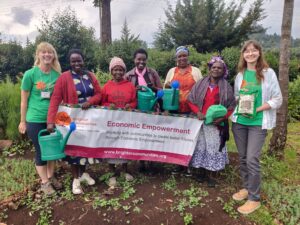
The positive impact of this programme appears to be immeasurable. With a successful income-generating activity, the capacity of the household/community develops significantly, leading to improved livelihoods, greater economic stability, poverty reduction, and enhanced opportunities for health and education.
From my own learnings at college, I have always viewed economic empowerment as one of the most dignified and uplifting forms of development aid as it gives people and communities the power and freedom to generate their own income. If I were to say anything to future volunteers, it would be that everyone has something to offer in this programme. I have never owned a business, nor would I consider myself well-versed in the field, however, I found that my own experiences could provide some advice or start some discussion. Perhaps we would talk about marketing techniques that we’ve seen in other businesses that we’ve liked or found a price for a product that is fair to the customer and beneficial to the business. Further, Bob Collins and Salim are wonderful facilitators, and you will find yourself learning and taking notes alongside the Kenyan participants!
International Development
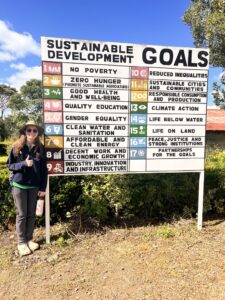
The foremost value of BCW is listening. This can be seen in the organizations unwavering commitment to understanding the needs and wants of the community and addressing them based on the community’s perspective. As I have talked about the developing world for years in and out of classroom settings, there were always some undertones of imposter syndrome. Everything I knew came from lecturers, documentaries, books, or talking with my peers. This experience gave me an opportunity to listen to Kericho communities and hear their stories of success and struggle. Before leaving for Kenya, I knew the impacts of climate change, but I had never spoken with individuals whose communities were impacted by deadly floods this past May, destroying their homes, farms, and infrastructure. I had seen pictures of small enterprises and heard about what kinds of business take place, but I had not yet walked through the Londiani market where hundreds were buying and selling products. I had written an essay for college on Fair Trade coffee in Africa. Still, I had never been to a coffee farm, seen a factory, or talked to farmers about their views of Fair Trade and how they think the industry should be managed. I had just made sure that when I went to the supermarket, I was purchasing coffee with the green and blue logo that told me farmers were working under safe conditions and receiving fair wages. I had not seen health outreach clinics, been to rural schools, seen community HIV testing, visited a hospital, or visited someone’s home when the family was receiving a smokeless stove. These are the conversations and experiences that should be the driving force in sustainable development. Livelihoods, infrastructure, and opportunity cannot be improved without fully understanding the needs and concerns of the people affected.
While it was amazing to hear the success stories and see the work firsthand, it was also a reminder of what work still needs to be done. As I return to college in September and continue working in global development, I can go back with a new perspective this experince has given me. What I knew before I left for Kenya was that there were people living in developing countries who lived completely different lives from my own and who had far fewer privileges and opportunities. Having come back from Kenya, what I know now is that the developing world is colourful, optimistic, eager for knowledge and just as eager to teach, musical, hard-working, creative, resourceful (using a tin mug and machete to build a smokeless stove, who knew!), and above all generous. The beneficiaries of the programmes I participated in were kind and welcomed me into their communities and homes with songs and prayers.
It was truly a privilege to have had this experience and to be welcomed so openly by the community. I will carry this experience, what I’ve learned, and the people I’ve met through my future work in global development.
Asante sana!
